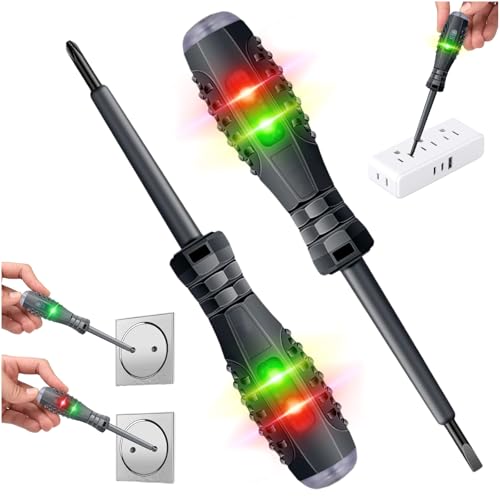shaun.taylor.vet
New member
Hi everyone
After some theoretical advice if possible.
I am a veterinary practitioner and independent small business owner (Bristol, UK). We run a small but busy vet clinic. I am conscious that our clinic uses a lot of electricity, with various items of equipment running 24/7 (our average daily usage is 30-40 kWh).
I am thinking about adding batteries, solar, and EV charger to our clinic, and moving to a “dual rate / economy 7 / EV-friendly” tariff, in order to reduce our high electricity bills, using a combination of solar and night-tariff battery charging.
Problem is: we are also planning to install a large CT imaging scanner. These are thirsty monsters, which generate high-power streams of x-ray radiation when in use. The one we are looking at has the following electrical specs:
Power range 80-140 kV
Maximum mA = 560mA
Maximum power = 56kW
3-phase 75kVA mains supply is a necessary requirement for this machine.
(Sorry I hope these figures make sense, they are lifted direct from the manufacturer book.)
I’m no electrician, but if an average CT scan might run for say 30 mins, I guess this could equate to an energy consumption of 28 kWh, at a power rate of 56kW, for those 30mins?
If we performed say 2 scans per day, this could mean a total clinic daily energy usage of 96 (40+28+28) kWh, with peak draw being around 66kW, when the CT scanner is running for 30mins (56kW) alongside the rest of the daily clinic requirements (say max 10kW when busy).
I appreciate this might be ambitious, but I’m wondering if solar panels and batteries could (partially or fully) support the CT scanner power requirements, and/or the remainder of the clinic’s electrical needs, during a live CT scan?
I appreciate I may need a LOT of PV panels and batteries, and then there may simply not be enough space to house this kind of capacity (our premises isn’t huge for a medical practice, similar in size to say a 5-6 bed house). I accept that “full” support from solar and battery is thus unlikely, but I’d be happy with “partial” cover, at least to try and reduce some of our daily electricity costs, plus the bonus of being protected against power cuts (a real headache when you are mid-CT scan).
I’m more worried about whether an invertor / battery setup could cope with a sudden demand for 55(+10) kW at the moment the CT scanner’s start button is pushed. Is there a maximum power draw rating for invertors/batteries without them overheating, or damaging other components of the array? Are there inverters that are compatible with 3-phase 75kVA supply, and suitable for handling these kinds of large sudden power demands?
Our CT suppliers think not, and have suggested maybe hardwiring the CT scanner directly to the 3-phase 75kVA supply, with its own UPS (ie bypassing the domestic battery/solar array entirely) and just using the array for the rest of the clinic.
It may also mean the batteries are drained in the first few hours of the morning, and then we run the rest of the day on daytime (expensive) tariff, so maybe not even cost effective, but I’m just keen to know if possible, or just too ambitious.
Sorry for the naive questions, any advice appreciated, thanks in advance.
Shaun T
After some theoretical advice if possible.
I am a veterinary practitioner and independent small business owner (Bristol, UK). We run a small but busy vet clinic. I am conscious that our clinic uses a lot of electricity, with various items of equipment running 24/7 (our average daily usage is 30-40 kWh).
I am thinking about adding batteries, solar, and EV charger to our clinic, and moving to a “dual rate / economy 7 / EV-friendly” tariff, in order to reduce our high electricity bills, using a combination of solar and night-tariff battery charging.
Problem is: we are also planning to install a large CT imaging scanner. These are thirsty monsters, which generate high-power streams of x-ray radiation when in use. The one we are looking at has the following electrical specs:
Power range 80-140 kV
Maximum mA = 560mA
Maximum power = 56kW
3-phase 75kVA mains supply is a necessary requirement for this machine.
(Sorry I hope these figures make sense, they are lifted direct from the manufacturer book.)
I’m no electrician, but if an average CT scan might run for say 30 mins, I guess this could equate to an energy consumption of 28 kWh, at a power rate of 56kW, for those 30mins?
If we performed say 2 scans per day, this could mean a total clinic daily energy usage of 96 (40+28+28) kWh, with peak draw being around 66kW, when the CT scanner is running for 30mins (56kW) alongside the rest of the daily clinic requirements (say max 10kW when busy).
I appreciate this might be ambitious, but I’m wondering if solar panels and batteries could (partially or fully) support the CT scanner power requirements, and/or the remainder of the clinic’s electrical needs, during a live CT scan?
I appreciate I may need a LOT of PV panels and batteries, and then there may simply not be enough space to house this kind of capacity (our premises isn’t huge for a medical practice, similar in size to say a 5-6 bed house). I accept that “full” support from solar and battery is thus unlikely, but I’d be happy with “partial” cover, at least to try and reduce some of our daily electricity costs, plus the bonus of being protected against power cuts (a real headache when you are mid-CT scan).
I’m more worried about whether an invertor / battery setup could cope with a sudden demand for 55(+10) kW at the moment the CT scanner’s start button is pushed. Is there a maximum power draw rating for invertors/batteries without them overheating, or damaging other components of the array? Are there inverters that are compatible with 3-phase 75kVA supply, and suitable for handling these kinds of large sudden power demands?
Our CT suppliers think not, and have suggested maybe hardwiring the CT scanner directly to the 3-phase 75kVA supply, with its own UPS (ie bypassing the domestic battery/solar array entirely) and just using the array for the rest of the clinic.
It may also mean the batteries are drained in the first few hours of the morning, and then we run the rest of the day on daytime (expensive) tariff, so maybe not even cost effective, but I’m just keen to know if possible, or just too ambitious.
Sorry for the naive questions, any advice appreciated, thanks in advance.
Shaun T































































